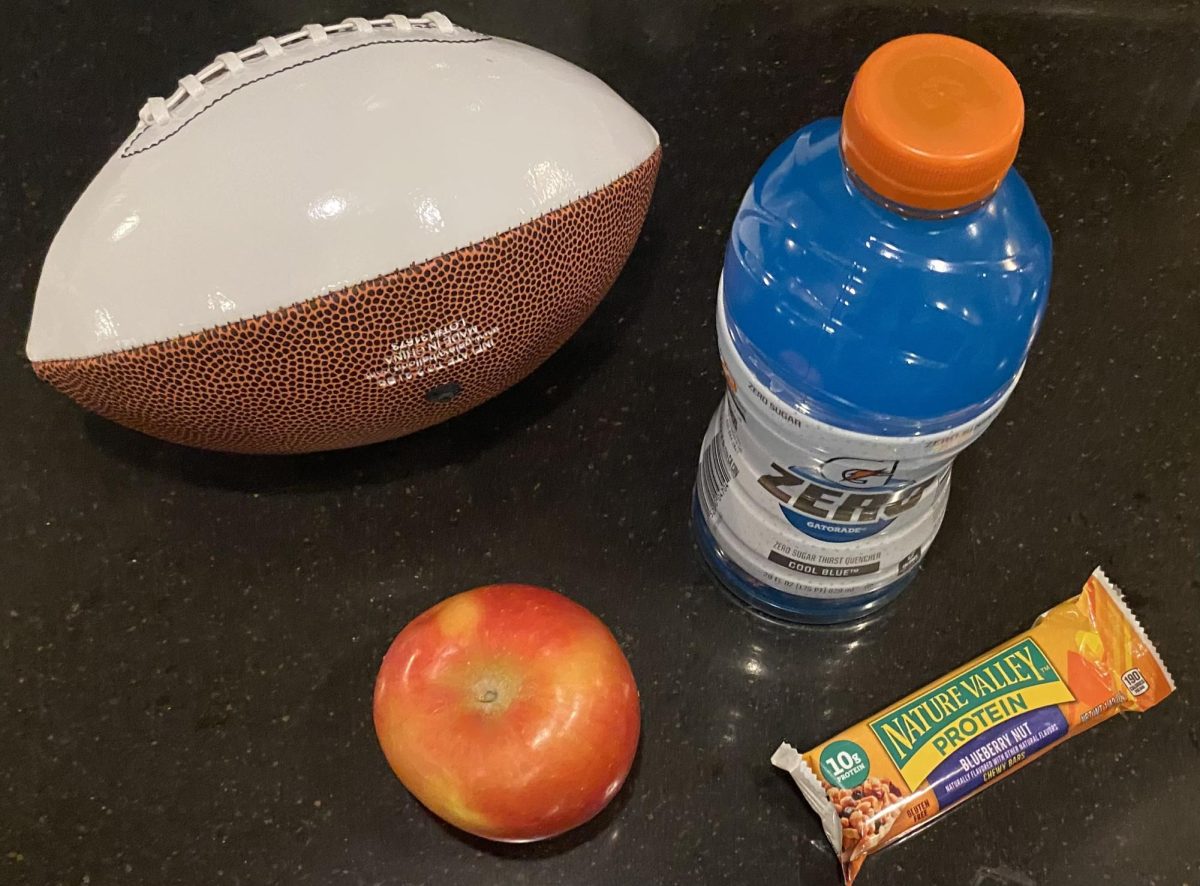Student-athletes at Scituate High School are getting back into the groove of winter sports, which means taking care of your body.
A significant factor in feeling and performing well in a sport is nutrition. To many athletes, eating enough of the right foods is emphasized, and their awareness of a balanced diet allows them to fuel their bodies better. But is nutrition a focus of student-athletes at SHS?
SHS athletic trainer and assistant athletic director Christopher Alves remarked, “At the high school level, I’m not sure that student-athletes necessarily eat healthier in season,” adding, “It depends a lot on what the student athlete’s knowledge is on sports nutrition.” He explained that student-athletes most likely try to eat healthy but might simply eat more during the season because they are more active. He stressed that “eating healthier and making sure you have the proper nutrition definitely helps fuel your body better, and if your body is fueled better, you’re likely to perform better.”
In a recent survey, 86% of SHS student-athletes polled stated they don’t eat healthier during the season but try to eat healthy year-round. Many attempt to provide their bodies with the right nutrients when needed. When asked about the effects of not eating enough of the right foods during the day, Meyer Gack, a senior Scituate hockey player, responded, “You start to get more cramps in your stomach and legs,” remarking, “You become more fatigued when you play as well.” Although nutrition may not be the biggest concern to SHS student-athletes, it clearly has a significant impact on their energy levels and overall performance.
According to the National Institute of Health, a good night’s sleep is as important for people’s health as nutrition and exercise, especially when participating in multiple daily activities. Both athletes and non-athletes at SHS are responsible for their own well-being, including getting themselves into bed at a decent hour. As winter sports are just beginning, some students find themselves in the stands rather than in the game. Still, regardless of their physical activities, all students require enough sleep to stay focused and energized throughout the day. Many students have different sleep schedules. Is the reasoning behind this sports-related?
Alves stated, “The other difficult part about winter sports is that the timing of practices and games can be very late into the evening. So it can certainly affect your productivity in terms of getting your homework done, and then it can interfere with what your regular sleep schedule might have been.”
According to Harvard Medical School, all high school students should get at least 7 hours of sleep each night. In the aforementioned poll, 85% of athletes get 7-8 hours of sleep, and 14% get 5-6 hours. Additionally, 40% of non-athletes get 7-8 hours, and 60% get 5-6 hours. Although some student-athletes get home late due to practices, they appear to get a better amount of sleep than those who don’t participate in sports. This suggests that their bodies require more sleep based on higher activity levels.
Playing a sport is a primary source of exercise for many high schoolers. Being active during the day is important to maintaining good health and staying in shape. As expected, SHS athletes reported exercising more days a week than non-athletes. Sixty percent of non-athletes exercise for 1-3 days while 40% exercise for 4-6 days, 70% of athletes exercise for 4-6 days, and the other 30% exercise daily. Non-athletes reported trying to do something active when they have free time but are also occupied with other activities and commitments. Athletes in season are exercising by playing sports, but are they getting additional exercise outside of school sports? According to Gack, “In season, it is hard with the schedule, but I’ll do stuff at home–like I’ll stretch, and I’ll ride my bike.” Athletes said finding the time for other activities can be difficult with their sports-filled schedules.
Nevertheless, Alves said, “I actually think it is healthy to do additional exercise outside of your sport. When you’re at practice or games, you’re being very sport-specific and acting at a high-intensity level. Doing something that is a lot lower of an exertion level, even if it’s yoga, or just going on a walk, can actually help in more of a psychological way with the body.”
Nutrition, sleep, and exercise are all core factors that allow high school students to maintain a healthy physical and mental mindset. While all students at SHS have different nutritional goals, most try to eat healthy throughout the year, regardless of playing a sport. With sleep schedules, athletes focus on having a balanced schedule and enough time to reset before the next day. Although some non-athletes make an effort to get exercise throughout the week, it is clear that athletes maintain more physical activity, with their 1-2 hour practices and games scheduled most days throughout the week.
Every SHS student has different routines, but especially for athletes during the season, healthy nutrition, sleep, and exercise are all incredibly impactful factors in their ability to perform at their best.
